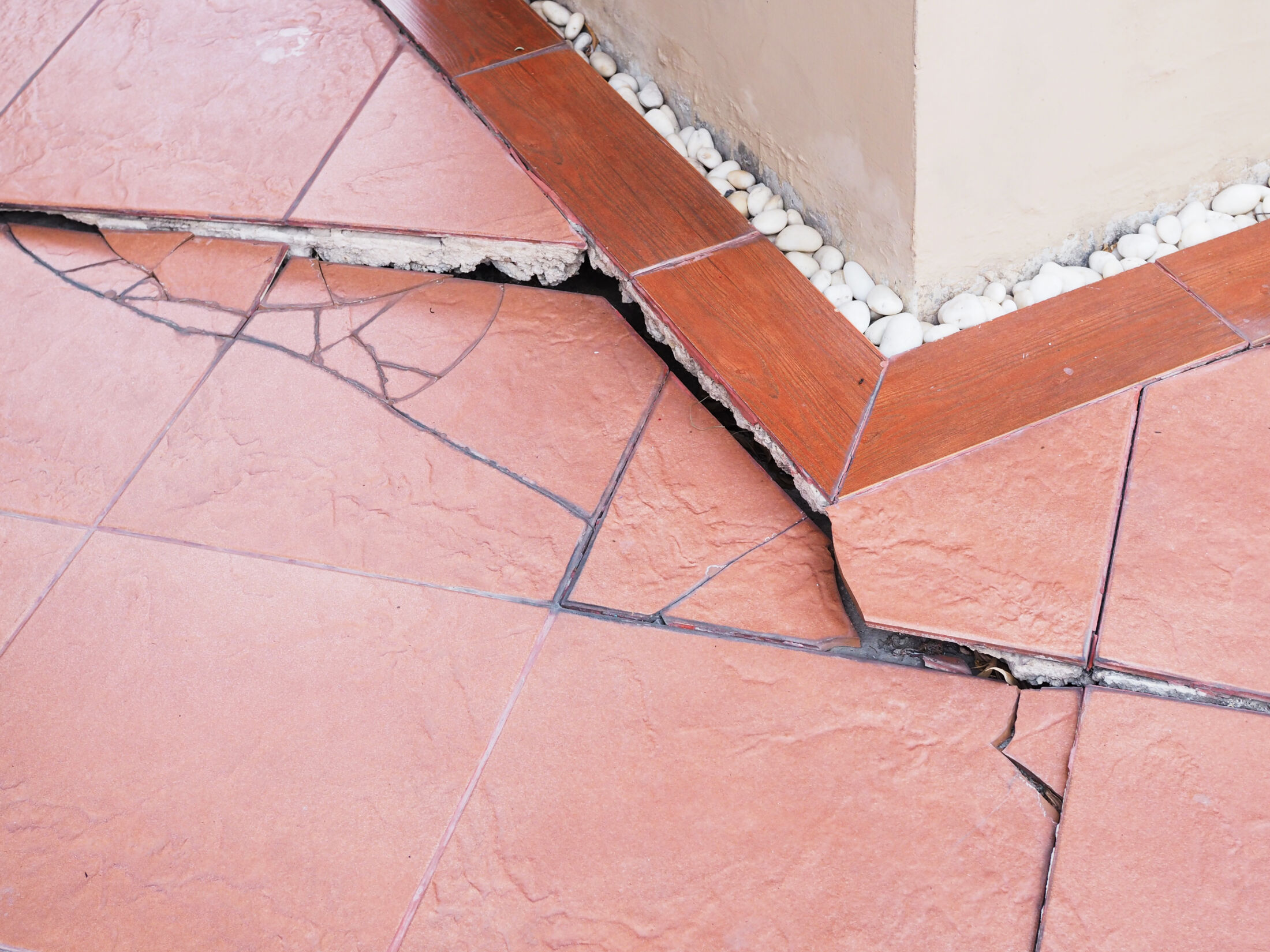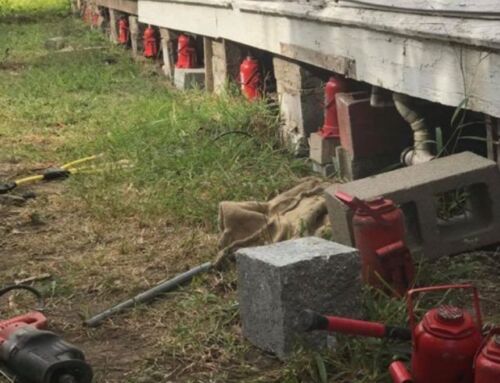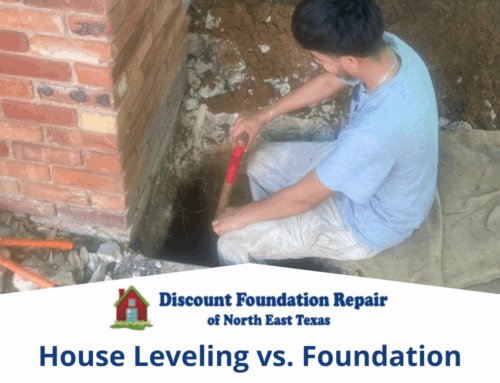If you’ve spotted cracks in your tile floor, Discount Foundation Repair Specialists in Irving, Grapevine, and Fort Worth can help determine whether it’s a surface issue—or a sign of deeper foundation trouble. Whether the damage is small or widespread, understanding what causes tile cracks and what to do next can save your home from more expensive problems later.
Cracks in tile floors are more common than most people realize. At first, it may just look like a cosmetic issue. Maybe a corner chipped after you dropped something heavy. But when those cracks keep appearing—or get longer—it might be time to take a closer look at what’s going on beneath the surface. In our experience, homeowners often overlook early warning signs until larger symptoms of foundation movement start to show. Catching it early is key.
Why Your Tile Floor Might Be Cracking
Tile is strong but rigid. That means it can handle a lot of pressure—but not movement. When something shifts below, like your subfloor or foundation, the tile has nowhere to flex, and it cracks. We’ve seen this in homes where the slab has started to settle unevenly, causing stress points in the flooring.
But it’s not always the foundation. Sometimes tiles crack because of installation issues—maybe the wrong kind of adhesive was used, or the subfloor wasn’t level. If your home is older, you might also be dealing with normal wear and tear. However, when cracks reappear after repairs or start running in a pattern, those are red flags worth checking out.
Homes in Fort Worth, Grapevine, and Irving are built on a mix of soil types, many of which are prone to expanding and contracting with changes in moisture. That natural soil movement puts stress on concrete foundations, and eventually on your floors. If you’re noticing cracks alongside other issues—like doors sticking, gaps around window frames, or creaking floors—those tiles might be warning you of a shifting foundation.

What You Should Do When You Notice Tile Cracks
The first step is simple: don’t ignore them. Take note of where the cracks are forming. Are they clustered in one area or scattered throughout the house? Do they run in straight lines, diagonals, or radiate out from corners? That pattern can say a lot about what’s happening underneath.
Next, resist the urge to just patch it and forget it. We know it’s tempting to cover it up, especially if it’s in a visible spot. But if the cause is foundation-related, cosmetic fixes won’t last—and you’ll be dealing with the same problem again soon. Instead, this is a good time to bring in a professional who understands the link between flooring issues and foundation problems.
That’s exactly what we do at Discount Foundation Repair Specialists. We don’t just look at the surface damage. We assess the whole structure, from the tile cracks to the soil beneath your home. Our goal is to give you clear answers—not a sales pitch. If the cracks are just surface-level, we’ll tell you. But if we see signs of shifting or settlement, we’ll walk you through your options.
What a Foundation Inspection Can Reveal
Our team looks at more than just the floor. During an inspection, we evaluate:
-
The type and pattern of floor cracks
-
Whether your foundation has shifted, sunk, or cracked
-
How exterior signs like brick separation or soil erosion are affecting your home
-
Whether moisture or poor drainage is contributing to soil movement
Sometimes, small tile cracks are part of a bigger story. A hairline crack might not seem like much, but if it lines up with a cracked exterior wall or a door that no longer closes properly, it could be a sign that your foundation needs attention. In cases like that, we’ll recommend the most appropriate fix, whether it’s pier installation, slab leveling, or drainage correction.
We’ve worked with hundreds of homeowners across Fort Worth, Irving, and Grapevine who were shocked to find out their tile damage was just the tip of the iceberg. Getting answers early can make all the difference in avoiding expensive repairs down the road.
How to Protect Your Tile Floors—and Your Foundation
Prevention starts with awareness. Keep an eye on new cracks, especially after heavy rain or drought, when the soil is most likely to move. Walk your house occasionally and check for signs like wall separation, gaps under baseboards, or floors that no longer feel level.
If you’re planning to replace tile floors, it’s a smart move to have your foundation inspected first. There’s no point in putting down new tile if the foundation underneath is still shifting. We’ve helped many homeowners avoid costly redos by catching foundation problems early in the process.
And if you’re not sure whether it’s serious? That’s what we’re here for. At Discount Foundation Repair Specialists, we offer honest assessments based on decades of hands-on experience in Texas soil. We never recommend repairs unless you truly need them—and if you do, we offer affordable options to get the job done right.
When You Need Peace of Mind About Cracked Tile Floors
Get the help you need from a foundation repair company that understands how Texas homes are built—and what they need to stay solid. If you’ve found cracked tiles in your home, don’t wait for things to get worse. Discount Foundation Repair Specialists serves homeowners in Irving, Grapevine, and Fort Worth with real answers and reliable repairs. Our team is friendly, experienced, and always focused on what’s best for your home.
Call us to schedule your inspection, and let’s find out what those tile cracks are really saying. We’ll help you protect your floors, your foundation, and your peace of mind.





